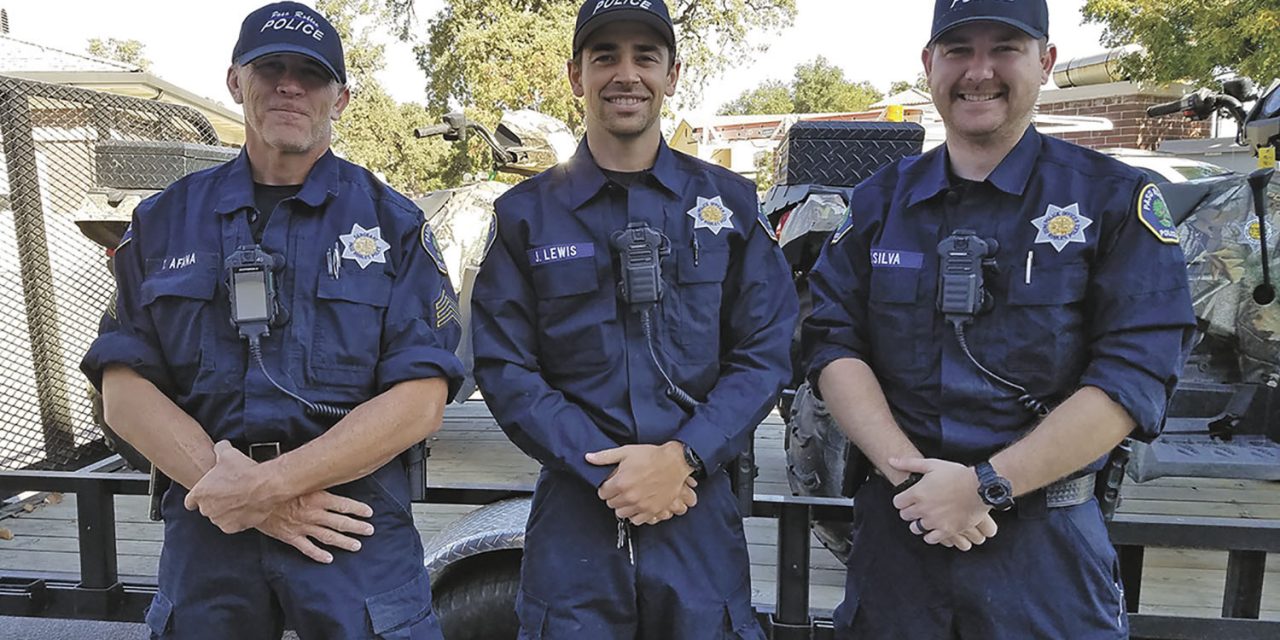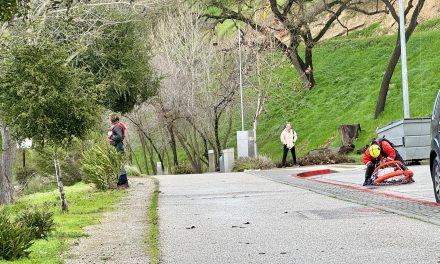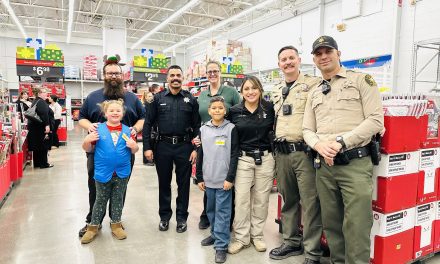CAT officers to interface with at-risk individuals
PASO ROBLES — In a new approach to address social challenges, the City of Paso Robles authorized a police-run Community Action Team in July. On Nov. 1, the four-person unit began its mission to build relationships with displaced and at-risk people and direct them to available resources.
CAT operates under the premise that law enforcement alone is not the solution to social problems. Across the state, police departments are instituting CAT programs to address issues specific to their area. For example, Paso Robles has a large displaced population residing in the Salinas riverbed. Therefore officers must be equipped to venture into the riverbed and be well versed in dealing with homeless individuals.
Officer Garrett Silva gave an example of people with mental health issues that stop taking their medication. These people act erratically and are arrested. However, since they have not committed a crime they are released into the public again. He said that the arrest deals with the immediate problem, but produces a revolving-door scenario that depletes resources and limits police ability to deal with crimes and emergencies.
“Taking them to jail only solves immediate issues, but doesn’t stop long-term issues,” Silva said.
Officer Josh Lewis said one of the biggest advantages that CAT officers have over general patrol officers is the ability to spend time with the people and help break the catch-and-release cycle. Lewis said officers have the opportunity to converse and build a rapport with the public.
“I just like helping people and that’s a big problem in our community is a lot of the homelessness. When you’re on patrol you can only have these short contacts and you can’t put in the effort to make a difference,” Officer Lewis said. “This allows us to spend time with them and get them the resources and not have to worry about another call coming in, I was drawn to that.”
Although each team member received training in the form of a 40-hour Crisis Intervention Course, team leader, Sgt. Terry Afana, said that they receive help from San Luis Obispo County. SLO County Psychiatric Technician Brooke Jordan works 20 hours a week with CAT.
Afana said the team realizes each person they deal with has their own set of circumstances and Jordan helps the officers navigate the ins and outs of social services.
Afana said Jordan saves the team a lot of time with her institutional knowledge. For example, Afana said that one of the first steps to getting people the help they need through social services is attaining an identification card which is something Jordan showed the team.
“We have a lot of connections, but we don’t know the best direction to go,” Afana said.
Afana said the unit is seeking out the best ways to help members of the public, but as with all new processes, it is full of trial and error. Less than a month old, Afana said the special unit has made great headway and learned valuable lessons. Continuing with the ID card example, he said the team can help acquire a voucher for the person needing an ID. However, the team learned they may have to sit with the person at the DMV to ensure they follow through and get the identification.
It is also a learning opportunity for the public both for those who fear police involvement and those who expect law enforcement to arrest “troublemakers” and take them away. People may be surprised to see a member of the police force sitting and talking with someone at the DMV. They also may be tempted to think that the officer is wasting their time, but in reality, they are laying down an important foundation to help the person stand on their own feet.
“It’s a marathon, not a sprint,” Lewis said.















